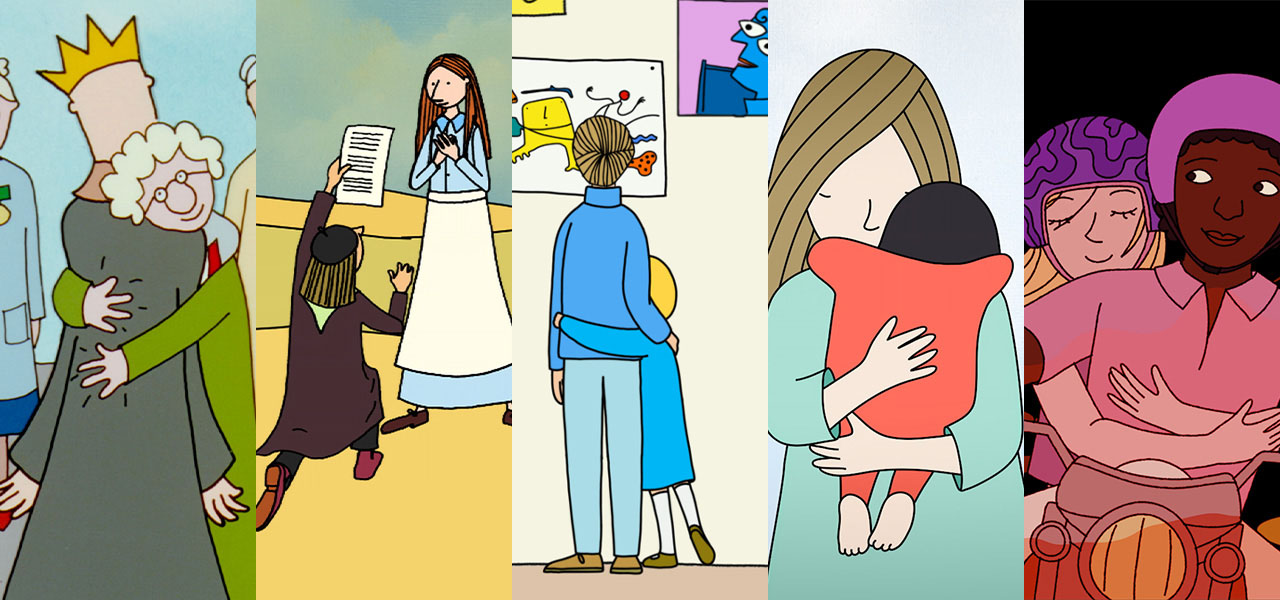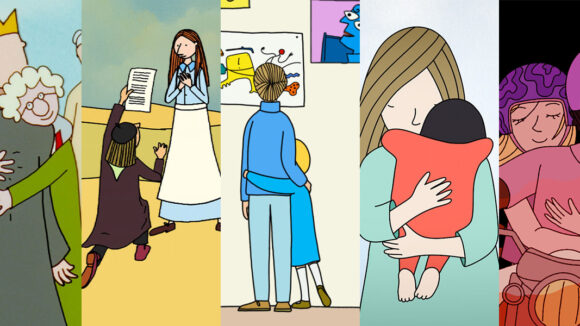

Enjoy Oscar-Winning Animator Torill Kove’s Heartwarming Shorts, Available Online For A Limited Time
Welcome to the Torill Kove Online Festival, presented by the National Film Board of Canada (NFB) and Mikrofilm.
We’re celebrating the work of the Oscar-winning animator with free streaming of her award-winning shorts as well as some of Kove’s personal recollections, which she’s put into writing exclusively for this online event.
There’s also a preview of her new film, Maybe Elephants. It’s her fourth film co-produced by the NFB and Norway’s Mikrofilm, a collaboration that dates back to 2001.
Born in Hamar, Norway, and now based in Montreal, Kove won the Oscar for her 2006 film The Danish Poet, which received the Academy Award for Best Animated Short at the 79th Academy Awards. She was also an Oscar nominee for My Grandmother Ironed the King’s Shirts (72nd Oscars) and Me and My Moulton (87th Oscars).
A recipient of Norway’s prestigious Anders Jahre Culture Prize, Kove added to her list of honors just last month at Vancouver’s Spark Animation festival, which is Western Canada’s largest animation event. Spark presented her with its Lifetime Achievement Award in recognition of her outstanding contributions to the field of animation, as well as this year’s Canadian Film Prize for Maybe Elephants, which is now entertaining festival audiences around the world after making its world premiere at the Annecy International Animation Film Festival in France.
Until January 17, all of the above films are available worldwide.
My Grandmother Ironed the King’s Shirts
My Grandmother Ironed the King’s Shirts, Torill Kove, provided by the National Film Board of Canada
Torill Kove: My first film was originally a story I wrote for an animation scriptwriting course. It was supposed to be an animated documentary about my father, who had died earlier that year. A small part of the script had to do with my grandmother telling me about her ironing the shirts of the King of Norway, and my professor told me that was the only redeeming part of the script. It was harsh but helpful feedback, and from it grew this story about an unlikely heroine of the Norwegian resistance during the Second World War — a white-haired grandmother wielding a burning-hot iron.
The Danish Poet
The Danish Poet, Torill Kove, provided by the National Film Board of Canada
Torill Kove: I started piecing this story together at a time when I was preoccupied with where I was in my life, my connections with my family and the country I had grown up in but left. I thought about how my parents had met and that the unlikelihood of it could make a good story. Ultimately, I decided my parents’ story wasn’t that good, but I liked the structure of a series of random, unconnected events leading up to their encounter — a kind of butterfly-effect trope. And there was a Danish poet character that I liked. My parents’ characters were replaced by a writer, a dog looking for love, a farm girl, a herd of goats and many other characters who found their way into the story.
Me and My Moulton
Me and My Moulton, Torill Kove, provided by the National Film Board of Canada
Torill Kove:My first two films were inspired by how and where I grew up, but they were both highly fictive. In Me and My Moulton, I took a more autobiographical direction. It is pieced together by stories my sisters and I used to tell about how weird our parents sometimes would seem to us when we were kids. The film tells the story of a conflicted seven-year-old girl who loves her parents but finds them embarrassing and deeply flawed. They have strange tastes in furniture and fashion; her Mom insists on dressing her three daughters in homemade clothes made of Marimekko fabric, and her Dad has the only mustache in town. Could things get any worse? One would hope not, but then she and her sisters ask for a bicycle. When it arrives, they face a choice: dismiss or embrace it.
Threads
Threads, Torill Kove, provided by the National Film Board of Canada
Torill Kove: This is a wordless film about the evolving bond between a small child and her mother. I often find myself talking about what this film is not: it is not a film about parenting, it is not a film about adoption, it is not about being a single parent. It is a film about attachment and love. The structure is loosely based on Maslow’s five-tiered model of human needs, beginning with physiological needs and then safety, love and belonging, esteem, and self-actualization. This is the only film I have made without any dialogue. I like words a lot, but in this film I found no need for them. It was all about gestures and the nuanced body language between two people who started their relationship with gentleness and touch.
5 Sure Signs Your Parents Were Architects
Torill Kove: People who grew up with architect parents know what it’s like. The geeky obsession with design, from the butter knife to the Christmas-tree ornaments. It never ends. After Me and My Moulton, I thought it would be fun to push this idea a little further and make a film that is only about this. Even though it pokes fun at a very specific group of people, I think it has a universal appeal because everybody, at some point, probably thinks their parents were a bit batty in some way or another.
